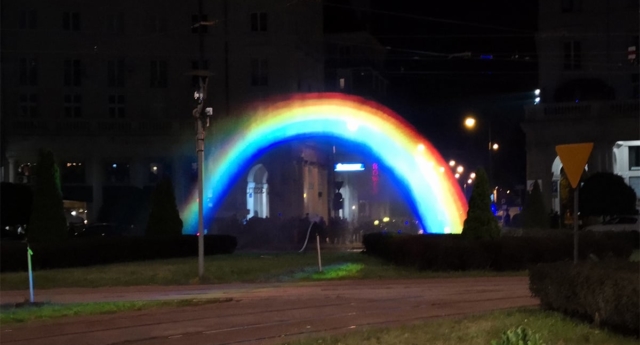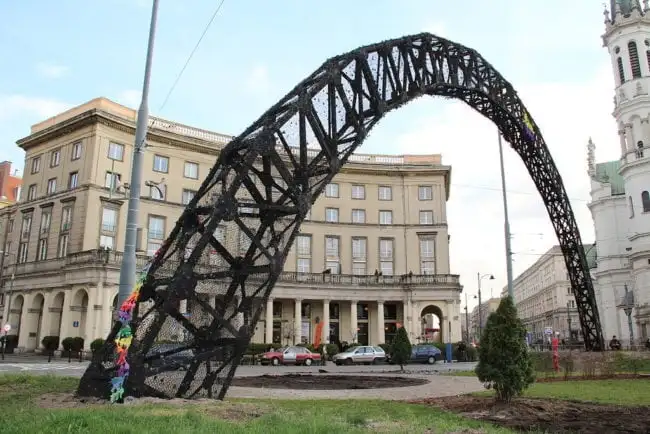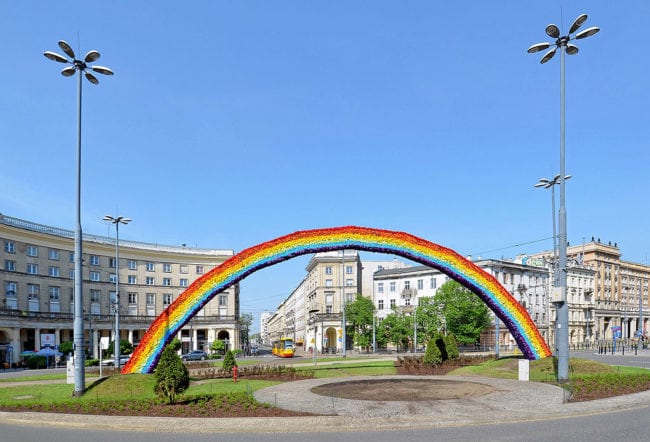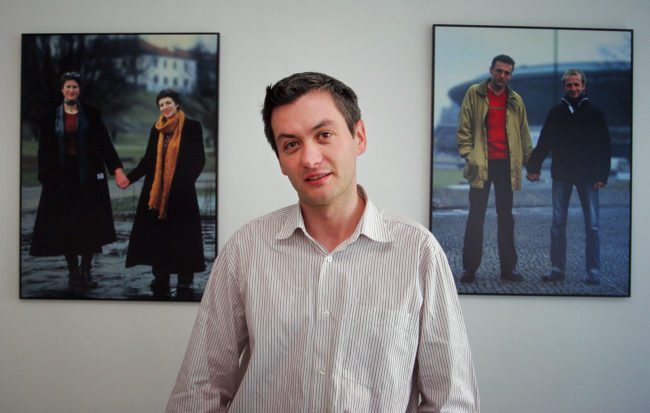Warsaw Gets ‘Unbreakable’ LGBT Monument for Pride After Vandalism

The capital of Poland has celebrated Pride with an “unbreakable” monument after the previous one was destroyed.
Before the Warsaw Equality Parade on Saturday, a new rainbow monument was unveiled at a busy intersection in the country’s capital, where a rainbow is formed by light bouncing off of water vapour, producing a holographic rainbow.
The monument is stationed at a busy intersection in the city on the site of a previous rainbow monument before it was repeatedly vandalised.
Organisers hope the rainbow will be “an unbreakable symbol of love, peace, LGBT rights and equality.”
Love Does Not Exclude Association, who helped organise the monument, said that it was symbolic.
Association chairperson Ola Muzinska told The Telegraph: “This rainbow signifies the start of a wider campaign to raise awareness of LGBT rights and in particular the fight for marriage equality in Poland.”
The rainbow has also become a hit on social media, with one person tweeting: “It’s indestructible and here to stay, gay science is so powerful.”

The previous rainbow was made of flowers and erected in 2012, before finally being removed in 2015 after repeatedly being vandalised.
The light rainbow was sponsored by ice-cream company Ben & Jerry’s. The company has notably supported LGBT causes in the past.
The company made headlines in 2017 after banning Australian customers from ordering two scoops of the same flavour in support of marriage equality.

Poland is expected to host 12 different Pride events this summer, a significant feat in the highly conservative country.
At present, the right-wing Law and Justice party, led by President Duda, has a staunch anti-LGBT voting record.
The politician blocked same-sex marriage legislation in 2017, stating that marriage between a man and a woman was “clearly and expressly regulated in the Constitution.”
He also vetoed the Gender Accordance Act, which would allow trans people to legally change their gender.
In Poland, approximately 91 percent of the population identify as Roman Catholic, according to a Eurobarometer 393 poll in 2012.
Although it is legal to be gay in Poland, public opinion as a whole is not in favour of LGBT+ rights.
According to pollsters Equaldex, 46 percent of the country surveyed said that society should not accept homosexuality.

However, there are fresh hopes that despite these statistics, Poland could vote in its first openly gay president during next election.
Current polls indicate that one in four Poles intend to vote for the left-wing candidate Robert Biedroń, who entered his political career as an LGBT+ activist.
Biedroń, who is the mayor of Slupsk, a town with a population of 98,757 in northern Poland, is considered a strong contender to current President Andrzej Duda.
Although the election is not set to take place until 2020, it means that the politician has a generous amount of time on his side to win nationwide support.